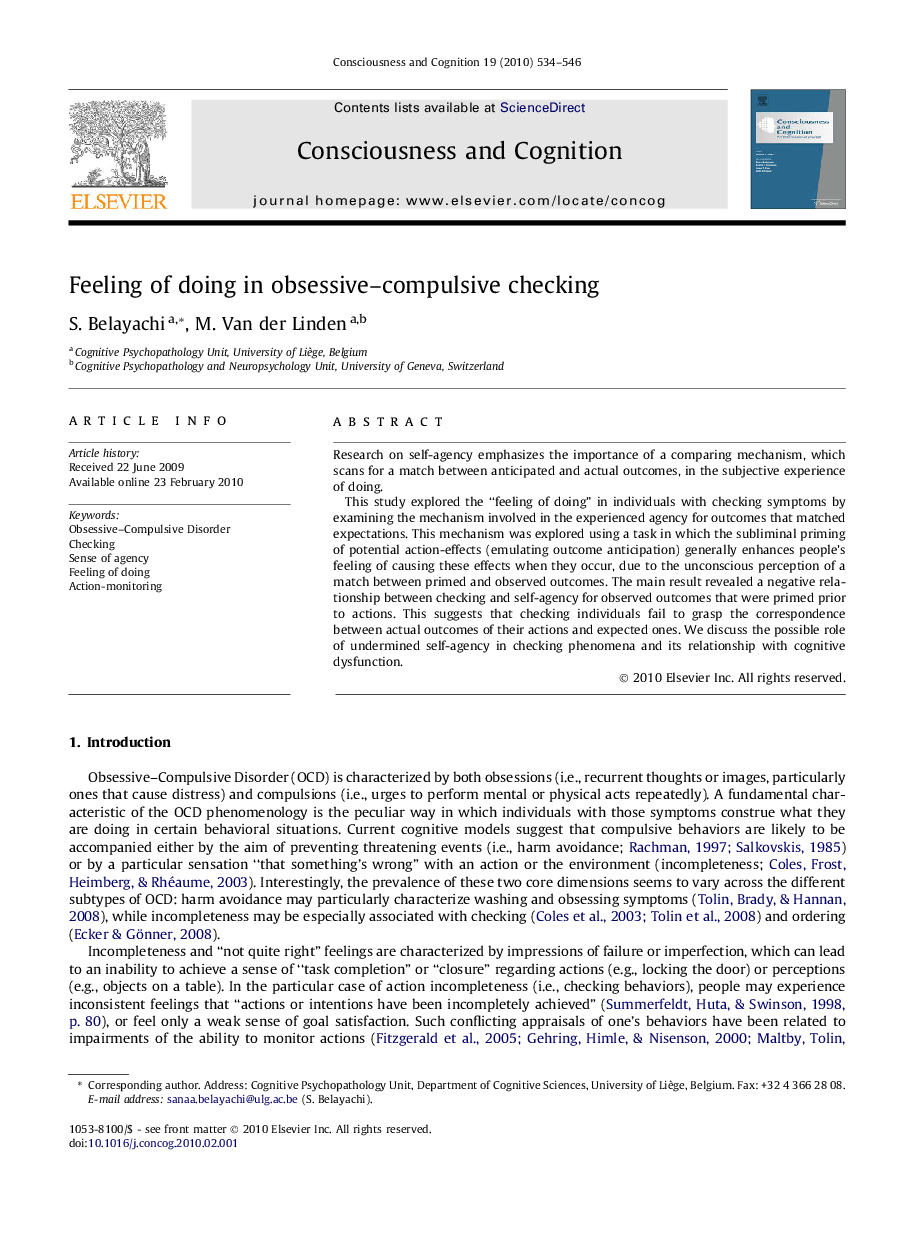| Article ID | Journal | Published Year | Pages | File Type |
|---|---|---|---|---|
| 927830 | Consciousness and Cognition | 2010 | 13 Pages |
Research on self-agency emphasizes the importance of a comparing mechanism, which scans for a match between anticipated and actual outcomes, in the subjective experience of doing.This study explored the “feeling of doing” in individuals with checking symptoms by examining the mechanism involved in the experienced agency for outcomes that matched expectations. This mechanism was explored using a task in which the subliminal priming of potential action-effects (emulating outcome anticipation) generally enhances people’s feeling of causing these effects when they occur, due to the unconscious perception of a match between primed and observed outcomes. The main result revealed a negative relationship between checking and self-agency for observed outcomes that were primed prior to actions. This suggests that checking individuals fail to grasp the correspondence between actual outcomes of their actions and expected ones. We discuss the possible role of undermined self-agency in checking phenomena and its relationship with cognitive dysfunction.
